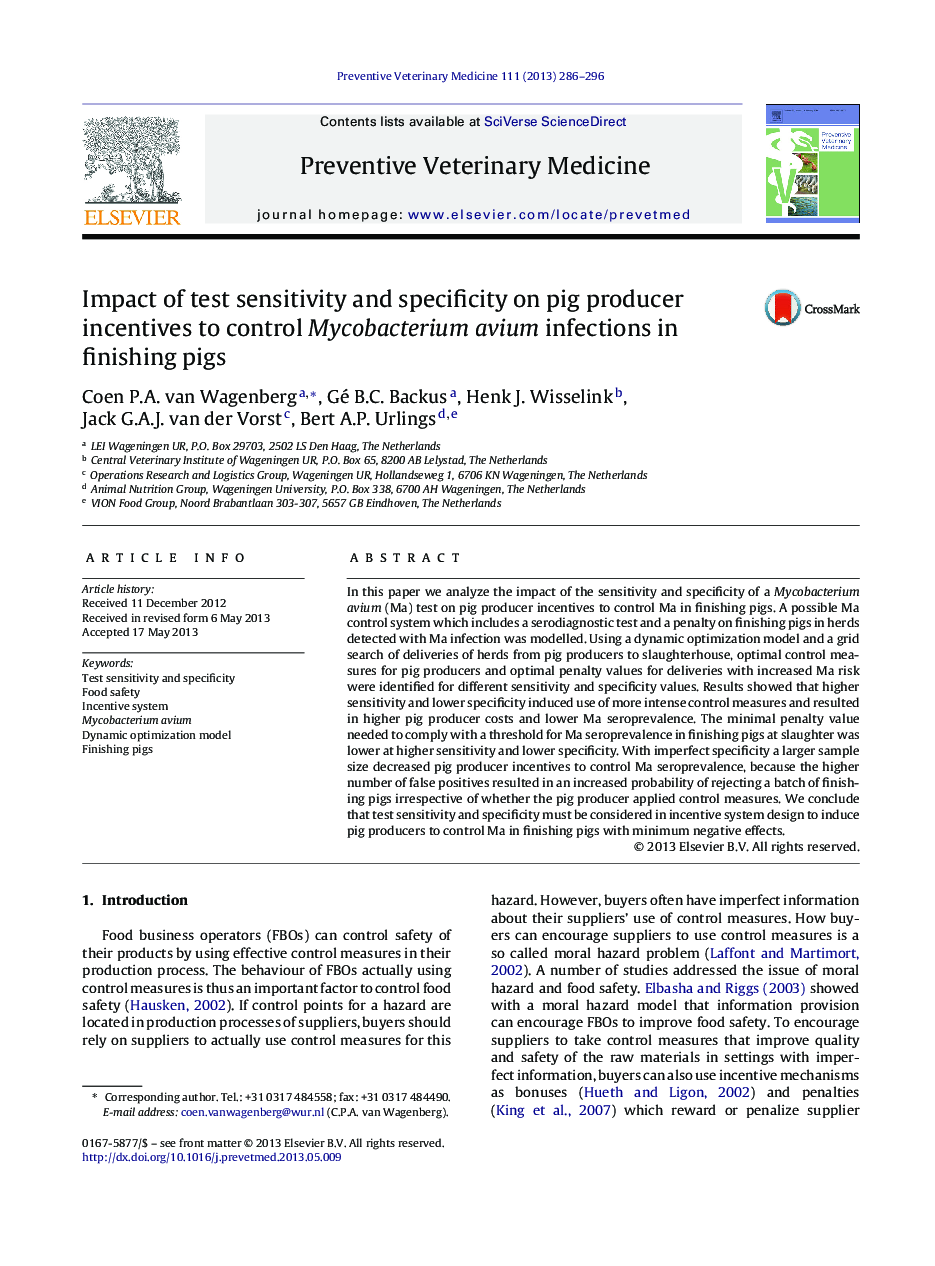| Article ID | Journal | Published Year | Pages | File Type |
|---|---|---|---|---|
| 2452550 | Preventive Veterinary Medicine | 2013 | 11 Pages |
In this paper we analyze the impact of the sensitivity and specificity of a Mycobacterium avium (Ma) test on pig producer incentives to control Ma in finishing pigs. A possible Ma control system which includes a serodiagnostic test and a penalty on finishing pigs in herds detected with Ma infection was modelled. Using a dynamic optimization model and a grid search of deliveries of herds from pig producers to slaughterhouse, optimal control measures for pig producers and optimal penalty values for deliveries with increased Ma risk were identified for different sensitivity and specificity values. Results showed that higher sensitivity and lower specificity induced use of more intense control measures and resulted in higher pig producer costs and lower Ma seroprevalence. The minimal penalty value needed to comply with a threshold for Ma seroprevalence in finishing pigs at slaughter was lower at higher sensitivity and lower specificity. With imperfect specificity a larger sample size decreased pig producer incentives to control Ma seroprevalence, because the higher number of false positives resulted in an increased probability of rejecting a batch of finishing pigs irrespective of whether the pig producer applied control measures. We conclude that test sensitivity and specificity must be considered in incentive system design to induce pig producers to control Ma in finishing pigs with minimum negative effects.
